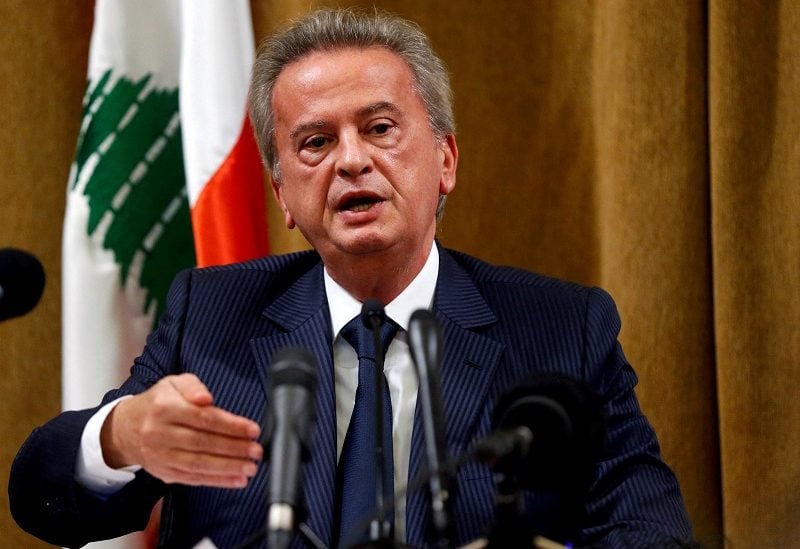
FILE PHOTO: Lebanon's Central Bank Governor Riad Salameh speaks during a news conference at Central Bank in Beirut, Lebanon, November 11, 2019. REUTERS/Mohamed Azakir//File Photo
The political, financial, and economic circles have been preoccupied with the developments of the judicial file of Lebanon’s central bank governor, Riad Salameh, especially after the Interpol issued an international arrest warrant against him, the “red notice,” which Lebanon received as part of the investigation into fraud allegations against Salameh.
While calls for Salameh’s resignation continued to escalate, he still defends himself, attacking politicians and advising the judiciary to initiate investigations against them.
In this context, the Minister of Interior, Judge Bassam al-Molaweh, confirmed that he would execute the arrest warrant issued by Interpol if the Lebanese judiciary decides to comply with it.
Regarding the legal process of the case, high-level legal sources confirm to “Sawt Beirut International” that after the issuance of the arrest warrant under the “red notice” against the central bank governor, demanding his arrest, and upon the arrival of this warrant in Lebanon, the central bank governor is supposed to be summoned to be heard before the prosecutor general. He will be listened to and kept free with a travel ban and seizure of his passport. The Lebanese authorities will also request the French authorities to prepare an extradition request against Salameh.
The sources further explain the procedure, stating that after the extradition request reaches Lebanon through the Ministry of Foreign Affairs, then to the Ministry of Justice, and subsequently to the prosecutor general, Judge Ghassan Oweidat, in accordance with the provisions of Article 35 of the Lebanese Penal Code, a preliminary hearing will be conducted again by the prosecutor general as part of the investigation and prosecution.
The sources indicate that it is necessary to interrogate Salameh to determine the presence or absence of the legal conditions for the extradition request and the establishment of the charges. After the interrogation, a decision will be made either to issue an arrest warrant and notification against Salameh or to dismiss the case due to the absence of legal conditions or lack of evidence for the charges, or considering that the act on which the extradition request is based is the same act pursued in Lebanon.
According to the sources, regardless of the decision, the prosecutor general will refer the case to the Minister of Justice, accompanied by his report. The Minister of Justice will then submit the extradition request, its attachments, and the investigations with the governor, along with the report of the prosecutor general, to the government for a decision on the extradition request through a decree issued by the Council of Ministers, based on the proposal of the Minister of Justice, whether to comply with the extradition request or not.
The sources expected that the Lebanese authorities would not extradite the governor to the French judiciary, citing the principle of nationality conflict, as Salameh holds both Lebanese and French nationalities, and both countries assert their jurisdiction in pursuing the case. They considered that the priority would be given to the law of actual or effective nationality, meaning the Lebanese nationality.